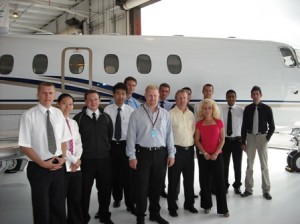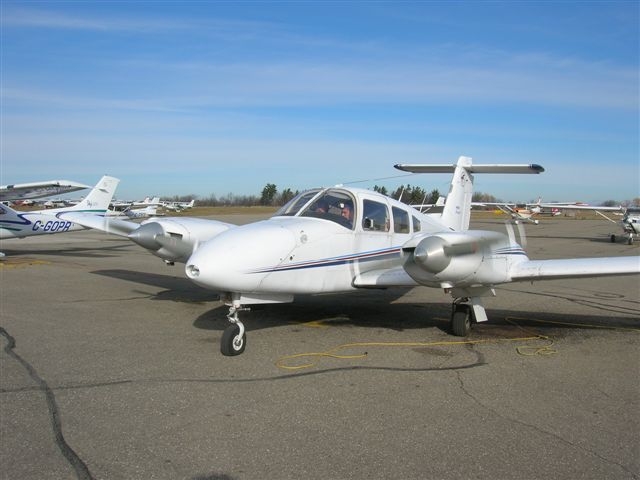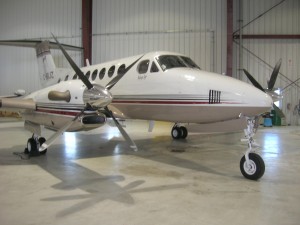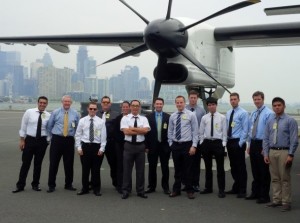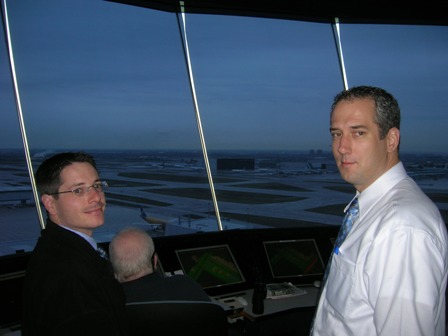Curriculum
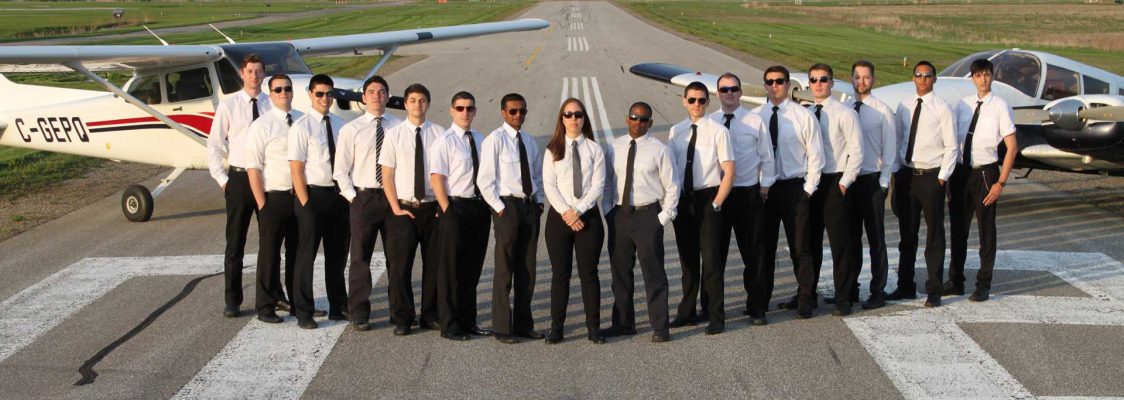
Brampton Flight College – Professional Pilot Diploma Program
The College Diploma Program is a 14 month full time training program that runs from July to September.
Students accepted into the Program typically attend ground school class five days per week. Students will be scheduled to fly six days a week but are encouraged to fly on the seventh if weather has not been cooperating. A typical day commences with flight training in the morning followed by ground school in the afternoon. Flight lessons may be scheduled as early as 0630 in the morning or may finish as late as midnight depending on training placement in program. Students commence flight training on the first day of the Program.
The highly structured Program delivers over 700 hours of instruction including ground school, flight and simulator training (FTD), and networking opportunities. Reinforcement of skills is accomplished through the use of labs, workshops and multi-crew simulator exercises.
The Program follows the ground school and flight training syllabus prescribed by Transport Canada for pilot licencing. The advanced airline training curriculum has been patterned after aircrew training programs recommended by ATAC and mandated by Transport Canada for Charter and Commuter air carriers. The Program also includes classes on “How to get a job after graduation”.
Upon completion of the Program, graduates receive a Commercial Pilot Licence with Multi-Engine and Group 1 Instrument Rating along with the Professional Pilot Program Diploma from Brampton Flight College. Each year it has been our practice to offer the top 25% of the graduates (up to the top three) from the Program positions as Flight Instructors at Brampton Flight Centre (some conditions apply).
Brampton Flight College is based at the Brampton Flight Centre. Flight training at Brampton airport provides experience for a student at an early stage with uncontrolled air traffic procedures, and proximity to Toronto Pearson and Hamilton Munro airport familiarizes trainees with air traffic control handling of commercial aircraft arrivals and departures.
Program ground school instruction takes place primarily in the College Lecture Hall and in our multi-crew Frasca Truflite simulator and our Redbird FMX full motion simulator. College students have their own dedicated instructional staff (typically aviation college graduates) supported by active airline pilots, particularly for advanced airline classes. Student progress is monitored closely to enable additional personal instruction if required. From time to time, training will also be augmented by field trips to airline operations offices, NavCanada and Transport Canada sites.
Private Pilot Licence Training
The Private Pilot Licence term within the Program involves over 200 hours of classroom instruction and 60-70 hours flying. You can expect to “solo” after 15-20 hours of dual time with a flight instructor. Classroom work will focus on subjects that include Air Law and Procedures, Navigation, Meteorology, Theory of Flight, Airframes, Engines and Systems, Flight Instruments, Flight Operations, Pilot Decision-Making and Human Factors in Flying. Upon completion of this training segment, a student will demonstrate proficiency through both a written exam and flight test administered by Transport Canada and earn a Radio Telephone Operator’s Certificate.
Commercial Pilot Licence Training
The Commercial Pilot Licence term within the Program involves about 250 hours of ground school instruction and 140-150 total hours flying. Flight training will focus on broadening your skills to include night flying, instrument flying, long range cross country flights, and emergency procedures. Classroom work involves revisiting the knowledge areas covered in the Private Licence ground school in more depth with additional concepts related to commercial air carrier operations. The ground school curriculum will cover additional course work not included in the Transport Canada Commercial Licence syllabus, including Crew Resource Management (CRM), Standard Operating Procedures (SOP’s), Introductory Math and Physics and First Aid/CPR. Upon attaining a minimum of 150 total hours flying, a student will demonstrate proficiency through both a written exam and flight test administered by Transport Canada.
Multi-Engine Rating
Multi-Engine Rating training involves approximately 30 hours of ground school and briefings and 10-15 hours flying/ simulator FTD (included in the Commercial Licence flying total). The ground school will cover such subjects as Multi-Engine aerodynamics, Multi-Engine PA-44 Seminole systems and Multi-Engine Standard Operating Procedures (SOP’s). Upon completion of the ground school and flight instruction, a student will demonstrate proficiency through a flight test administered by a Transport Canada approved examiner.
Group 1 Instrument Rating
Group 1 Instrument Rating training involves approximately 60 hours of ground school and briefings and 40-45 hours flying/simulator FTD (included in the Commercial Licence flying total). The ground school will cover such subjects as IFR Air Traffic Services/Control and Airspace, Weather Theory for IFR Flight, IFR Instruments and Radio Aids, IFR Departure/Enroute/Approach Procedures, and IFR GPS Operations, . Upon completion of the ground school and flight instruction, a student will demonstrate proficiency through both a written exam and flight test administered by a Transport Canada approved examiner.
Advanced Airline Training
The Advanced Airline Training segment involves approximately 180 hours of ground school instruction. The ground school is based on subjects included in Initial Training programs presented to new hire pilots by Charter and Commuter airline operators and covers areas such as Airline Air Law, Multi-Crew Flight Deck Procedures, Advanced Aircraft Systems,”Glass” Avionics and Flight Management Systems (FMS), High Altitude Operations, Airborne Icing and Surface Contamination, Transportation of Dangerous Goods (TDG), Oceanic Operations, Safety Management Systems (SMS), Survival Equipment and Controlled Flight Into Terrain (CFIT) Avoidance.
Getting a Job
The Advanced Program finishes with a series of classes to help students “get their first job”. This segment includes training with respect to aviation business knowledge, flight instructing, resume development, interviewing, “sim” ride skills and networking opportunities for contacts and references. Consistent with our commitment to our graduates “getting a job”, it has been Brampton Flight Centre’s practice to offer the top graduates (25%) each year positions with Brampton Flight Centre as flight instructors. In addition, industry tours are arranged to provide further career perspectives for class members.
Get a Head Start – Applications open in January!
For more information please contact the Campus Administrator at (905) 838-1400 ext. 248 or by emailing [email protected]

